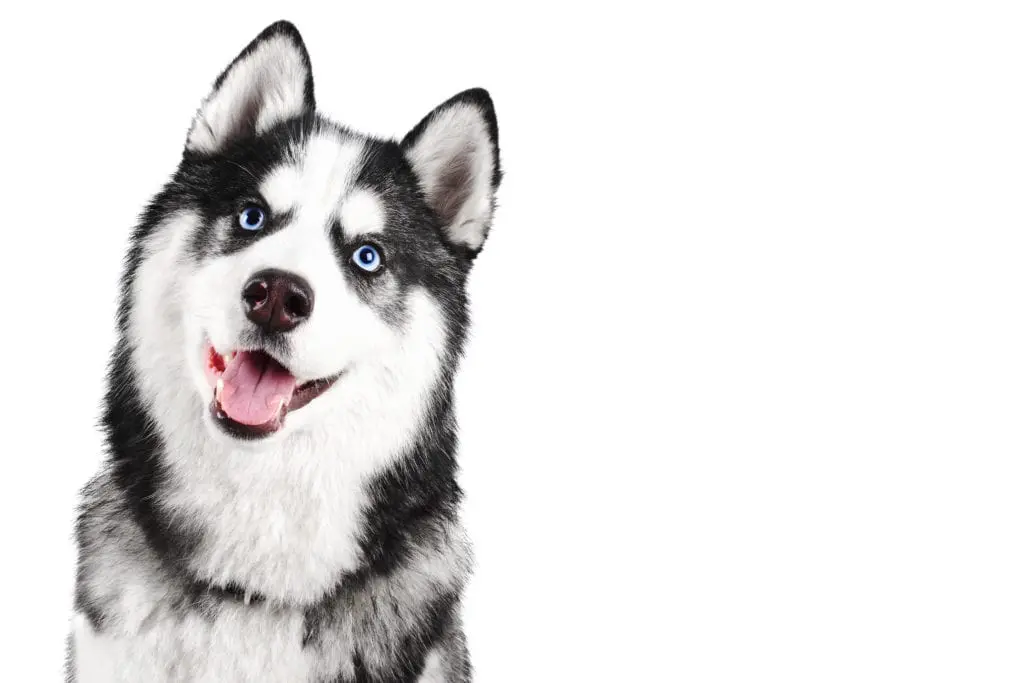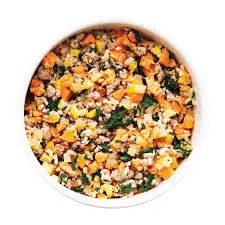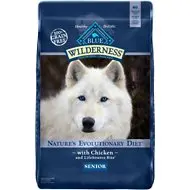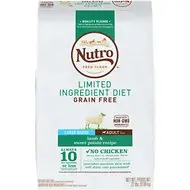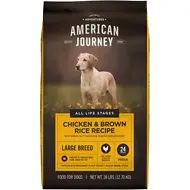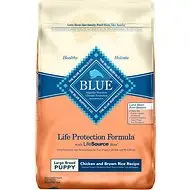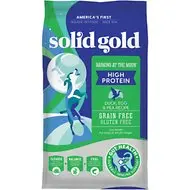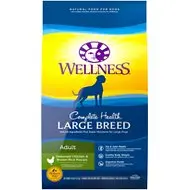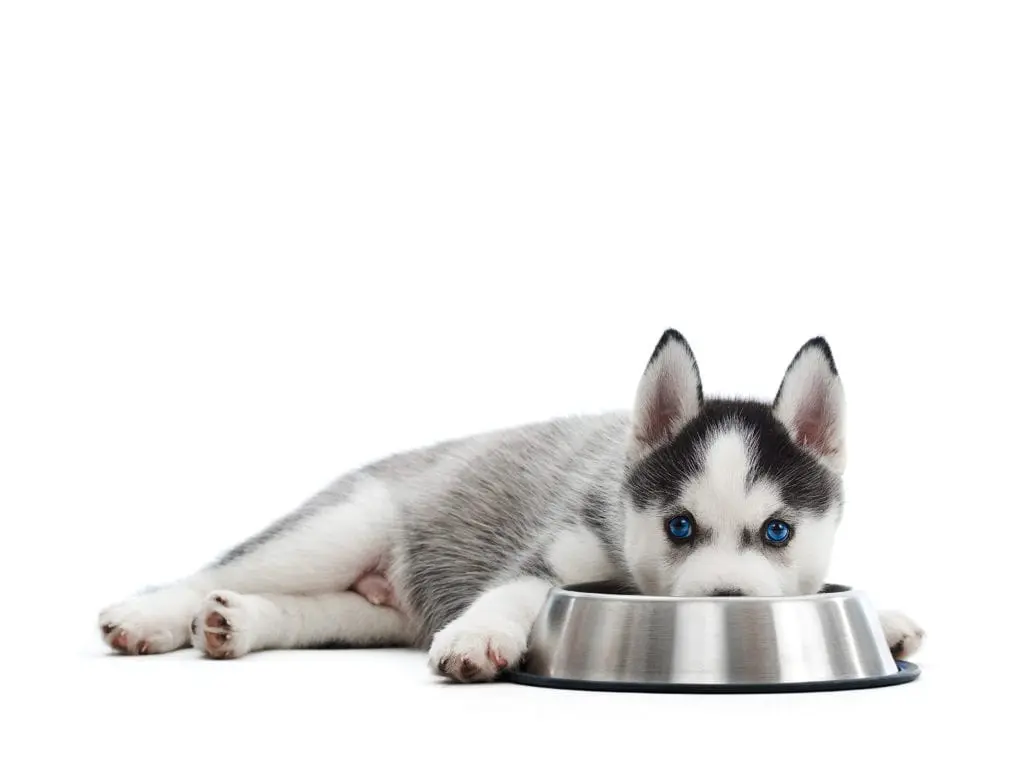10 Best (Healthiest) Dog Foods for a Husky in 2025
Quick Guide
- What Is The Best Dog Food For Huskies?
- What Do You Need to Know About Huskies?
- Do They Have Any Special Dietary Needs?
- What to Look for in a Good Husky Dog Food
- The 10 Best Husky Dog Foods
- Overall Best Husky Dog Food: NomNomNow Fresh Food Delivery
- Most Popular Husky Dog Food: Taste of the Wild Sierra Mountain Grain-Free Dry Food
- Most Affordable Husky Dog Food: American Journey Large Breed Chicken & Brown Rice Protein First Dry Food
- Best Husky Puppy Food: Blue Buffalo Life Protection Formula Large Breed Puppy Chicken & Brown Rice Recipe Dry Food
- Best Husky Dog Food for Seniors: Blue Buffalo Wilderness Senior Chicken Recipe Grain-Free Dry Food
- Best Food for Husky with Sensitive Stomach: Nutro Limited Ingredient Diet Grain-Free Adult Large Breed Lamb & Sweet Potato Recipe
- 4 More Top-Rated Husky Dog Foods
- Frequently Asked Questions
Huskies are full of energy – this is the most important thing to know before you commit to the breed. They require a significant amount of daily exercise and, even if they get it, it’s no guarantee against destructive behavior. In addition to making sure your Husky’s exercise needs are met, you also need to provide him with a high-quality, balanced diet to support his metabolism. These dogs generally weigh 35 to 60 pounds at maturity which puts them in the large-breed category.
In this article, we’ll take a closer look at the Husky breed and explore some of its unique nutritional needs. We’ll also provide some tips for choosing the best food brand for Huskies and give you our top 10 picks in that category.
What Is The Best Dog Food For Huskies?
- NomNomNow Fresh Food Delivery
- Taste of the Wild Sierra Mountain Grain-Free Dry Food
- American Journey Large Breed Chicken & Brown Rice Protein First Dry Food
- Blue Buffalo Life Protection Formula Large Breed Puppy Chicken & Brown Rice Recipe Dry Food
- Blue Buffalo Wilderness Senior Chicken Recipe Grain-Free Dry Food
- Nutro Limited Ingredient Diet Grain-Free Adult Large Breed Lamb & Sweet Potato Recipe
What Do You Need to Know About Huskies?
Huskies are known for their wild look and their energetic temperament. These dogs are always on the move, and they never seem to tire, no matter how much exercise they get. The Siberian Husky was originally developed by the seminomadic Chukchi people of Northeastern Asia to pull sleds. They became known in America when they were used to deliver life-saving diphtheria treatment to the remote town of Nome, Alaska in the 1920s. Today, they are a popular family pet for active families.
Though the Husky may not be a good fit for inexperienced dog owners, they are very smart and have the capacity to learn quickly. Huskies enjoy games and can do well in certain dog sports. The key is that they need a strong leader to keep their energy under control. You should start training and socializing a Husky puppy from a very young age to prevent it from learning bad habits. Also, know that these dogs can be very destructive – they like to dig and chew, so know that these habits can become amplified when the dog’s exercise needs are not being met.
Do They Have Any Special Dietary Needs?
Though the Husky walks the line between being a medium and a large-breed dog, it is a good idea to treat him like a large breed, just to be safe. Large-breed dogs need to have their growth controlled because growing too quickly in early age can lead to an increased risk for bone and joint problems in adulthood. Fortunately, large-breed dog foods are usually supplemented with glucosamine and chondroitin for joint support with controlled levels of calcium and phosphorus for bone health.
Aside from the typical problems you might see in a large-breed dog, the Husky has a few other health issues to think about. Here are some of the other health problems to which the breed is prone:
- Hip dysplasia
- Juvenile cataracts
- Corneal dystrophy
- Progressive retinal atrophy
- Elbow dysplasia
- Von Willebrand’s disease
- Thrombopathia
You also need to be mindful of your Husky’s risk for bloat, a life-threatening condition also known as gastric dilation volvulus. This happens when the dog’s stomach fills with air and twists, cutting off blood flow to essential organs. It can happen when your Husky eats too much at once, eats too fast or swallows too much air while eating. Avoid feeding your dog right before or after strenuous exercise, and consider using a slow-feed bowl to keep him from eating his meals too quickly.
Because Huskies are so active, they have a fairly low risk for obesity. It is always a good idea, however, to keep an eye on your dog’s body weight and condition. If he starts to gain too much weight, you may need to switch to a lower calorie food. Talk to your vet before making significant dietary changes.
What to Look for in a Good Husky Dog Food
All dogs require a high-quality diet rich in protein with healthy fats for calories and essential fatty acids. Protein provides the building blocks for strong muscles, so your Husky puppy needs a minim of 22% in his diet. As an adult, protein helps your dog maintain lean muscle mass, so he needs at least 18%. In both cases, more protein is usually a good thing as long as it comes from animal sources. Plant proteins are not complete proteins, which means that they don’t contain all essential amino acids.
In addition to protein, your Husky needs plenty of healthy fats – more fats than other breeds due to their high energy levels. Fat provides a concentrate source of calories for dogs as well as support for the skin and coat. Animal fats are the best, but plant oils can be used to provide the right balance of omega-3 and omega-6 fatty acids. Aim for at least 10% fat but ideally 12% to 18% fat for your Husky.
Here are some things to look for in a good Husky dog food:
- High in animal protein. A high-quality source of animal protein should be the first ingredient in your Husky’s diet. Meat, poultry, and fish are the best sources to look for.
- Moderate-to-high fat and calories. Animal fats like salmon oil and chicken fat are best for dogs, but plant oils like canola oil or flaxseed can supplement the fat content. Essential fatty acids play a number of nutritional roles, but omega fatty acids, in particular, are good for skin and coat.
- Digestible carbohydrates. Whole grains, fruits, and vegetables are the most digestible carbohydrates for your dog. If your dog can’t tolerate grains, look for other options like sweet potato or tapioca. There have been some concerns about legumes being linked to dilated cardiomyopathy in dogs, so limit things like peas and lentils in your dog’s food.
- Wholesome, natural ingredients. The quality of the ingredients in your dog’s diet affects their digestibility. Wholesome, natural ingredients are the most digestible and the most nutritious, so avoid dog foods made with fillers, by-products, and additives.
- Complete and balanced. Any dog food that carries an AAFCO statement of nutritional adequacy is nutritionally complete, but that doesn’t guarantee the quality of ingredients. Make sure the product contains vitamins and minerals and is formulated for your dog’s age and breed size.
Now that you know more about your Husky’s nutritional needs, you’re ready to start shopping for the best food for Siberian Huskies. Keep reading to see our top 10 picks.
The 10 Best Husky Dog Foods
| Our 2025 Picks: Best Husky Dog Foods | |||
NomNomNow Fresh Food Delivery
|
CHECK PRICE | ||
Taste of the Wild Sierra Mountain Grain-Free Dry Food
|
CHECK PRICE | ||
American Journey Large Breed Chicken & Brown Rice Protein First Dry Food
|
CHECK PRICE | ||
Blue Buffalo Life Protection Formula Large Breed Puppy Chicken & Brown Rice Recipe Dry Food
|
CHECK PRICE | ||
Blue Buffalo Wilderness Senior Chicken Recipe Grain-Free Dry Food
|
CHECK PRICE | ||
Nutro Limited Ingredient Diet Grain-Free Adult Large Breed Lamb & Sweet Potato Recipe
|
CHECK PRICE | ||
The best dog food for a Husky will be rich in high-quality animal protein with moderate-to-high fat and calorie content. It should be highly digestible, made with wholesome natural ingredients and free from fillers and artificial additives. As long as your Husky’s basic needs are met with high-quality ingredients, you have plenty of options to choose from. Here’s our top pick for the best Husky dog food:
Overall Best Husky Dog Food: NomNomNow Fresh Food Delivery
Your Husky needs a healthy, high-quality diet to maintain excellent health. Many pet experts agree that fresh pet food is best for dogs of all breeds, so it is definitely something to consider for your Husky. NomNomNow is a fresh pet food delivery service that sends pre-portioned packages of fresh pet food right to your door on a monthly basis. This company prepares all of their food in small batches using only the healthiest, high-quality ingredients to give your dog the premium nutrition he deserves. Choose from several grain-free and grain-inclusive recipes with different types of protein according to your dog’s tastes. If your Husky has special dietary requirements, simply talk to a representative and they’ll work with you. NomNomNow calculates your dog’s calorie requirements to send you pre-portioned packages, so all you have to do is open one package a day and divide it as you see fit.
Pros: Fresh food delivered to your door, perfectly portioned for your dog’s calorie needs, choose from several protein options, grain-free and grain-inclusive available, complete and balanced
Cons: Not size-specific, more expensive than traditional kibble
Most Popular Husky Dog Food: Taste of the Wild Sierra Mountain Grain-Free Dry Food
When you can’t decide what to feed your Siberian Husky, you can always go with a popular brand like Taste of the Wild. This brand offers a variety of high-quality grain-free dog foods featuring premium roasted meats and fresh fruits and vegetables. This Taste of the Wild Sierra Mountain Grain-Free Dry Food is loaded with premium animal protein, fresh fruits and vegetables, and healthy fats. It is a single-source protein recipe featuring fresh lamb and lamb meal as well as roasted lamb to provide a total of 25% crude protein. This recipe features grain-free, highly digestible carbohydrates like sweet potatoes and lentils with plenty of fiber for healthy digestion, not to mention probiotic supplements as well. It contains fresh fruits and vegetables like tomatoes, blueberries, and raspberries to act as natural sources for key nutrients with vitamin supplements and chelated minerals for nutritional balance. It also provides a blend of omega-3 and omega-6 fatty acids for healthy skin and coat, with a total of 15% fat, 5% fiber, and just 338 calories per cup.
Pros: Single-source of animal protein, highly digestible, fresh fruits and vegetables, blend of omega fatty acids, chelated minerals, probiotics for healthy digestion, complete and balanced
Cons: Could be higher in protein, some dogs don’t require a grain-free diet
Most Affordable Husky Dog Food: American Journey Large Breed Chicken & Brown Rice Protein First Dry Food
Dog food can be expensive, especially when you use high-quality ingredients. If you’re looking for a good dog food for your Husky that is also affordable, try this American Journey Large Breed Chicken & Brown Rice Protein First Dry Food. It features real deboned chicken as the first ingredient and a lean source of animal protein. Chicken meal provides a concentrated source of supplemental protein as well as a natural source of joint-supporting glucosamine and chondroitin. For carbohydrates, this recipe focuses on digestible whole grains like brown rice, barley, and oatmeal with fresh fruits and vegetables for nutritional support. These fresh ingredients help supplement the vitamin supplements and chelated minerals to ensure complete and balanced nutrition. This formula is designed for large breeds, so you can bet that it will support your dog’s lean muscle mass while meeting his needs for energy as well.
Pros: Formulated for large breeds, rich in lean animal protein, highly digestible carbohydrates, fresh fruits and vegetables, rich in fiber for healthy digestion, chelated minerals, moderate fat/calories
Cons: Contains some plant protein (pea protein)
Best Husky Puppy Food: Blue Buffalo Life Protection Formula Large Breed Puppy Chicken & Brown Rice Recipe Dry Food
If you’re looking for the best food for Siberian husky puppy, we recommend Blue Buffalo Life Protection Formula Large Breed Puppy Chicken & Brown Rice Recipe Dry Food. This formula is uniquely designed to support the growth and development of large-breed puppies. It features fresh chicken as the main ingredient with digestible brown rice as the primary carbohydrate. It contains DHA and ARA for healthy brain and eye development with a rich blend of omega-3 and omega-6 fatty acids for healthy skin and coat – this is particularly important for Huskies. This dog food contains the ideal level of calcium and phosphorus to support healthy bones and it comes in a special puppy-sized kibble to make it easy for your puppy to eat. Plus, like all Blue Buffalo recipes, it features LifeSource Bits which contain a proprietary blend of vitamins, minerals, and antioxidants for complete and balanced nutrition. If this flavor doesn’t appeal to your puppy, there are plenty of others to choose from, including one that is not formulated specifically for large breeds.
Pros: Formulated for large breeds, fresh chicken first ingredient, digestible whole-grain carbohydrates, fresh fruits and vegetables, blend of omega fatty acids, LifeSource Bits, highly digestible
Cons: Contains some plant protein (pea protein)
Best Husky Dog Food for Seniors: Blue Buffalo Wilderness Senior Chicken Recipe Grain-Free Dry Food
If you’re already feeding your Husky puppy Blue Buffalo food, you are likely to choose Blue Buffalo for his adult dog food and, later in life, his senior food. One of our top picks for the best Husky dog food for seniors is Blue Buffalo Wilderness Senior Chicken Recipe Grain-Free Dry Food. This recipe is inspired by the natural diet of wild wolves, your Husky’s ancestors, and features fresh chicken as the main ingredient. Fresh chicken is supplemented with chicken meal and turkey meal as concentrated sources of protein, not to mention natural sources of joint-supporting glucosamine and chondroitin. This formula is grain-free, made with sweet potatoes to provide a rich source of complex (and highly digestible) carbohydrates. This recipe also contains a variety of fresh fruits and vegetables to provide natural sources for key nutrients with Blue Buffalo’s LifeSource Bits to ensure complete and balanced nutrition, not to mention rich antioxidant content. This formula provides 30% protein for healthy muscle maintenance and 12% fat with 387 calories per cup.
Pros: Formulated for large-breed seniors, real chicken first ingredient, highly digestible, rich in omega fatty acids, fiber for healthy digestion, fresh fruits and vegetables, LifeSource Bits
Cons: Contains plant protein as a main ingredient (pea protein)
Best Food for Husky with Sensitive Stomach: Nutro Limited Ingredient Diet Grain-Free Adult Large Breed Lamb & Sweet Potato Recipe
If your Husky has digestive issues, it could be a sign of food allergies or a sensitive stomach in which case a limited ingredient diet might be best. Our top pick for the best food for Husky with sensitive stomach is Nutro Limited Ingredient Diet Grain-Free Adult Large Breed Lamb & Sweet Potato Recipe. This formula features just 10 main ingredients with protein-rich lamb at the beginning of the list. The recipe contains lamb meal as well as a concentrated source of supplemental protein. This dog food is highly digestible, made with grain-free carbohydrates like chickpeas and potatoes with plenty of supplemental fiber to ensure healthy and regular digestion. There is also a rich blend of omega-3 and omega-6 fatty acids for healthy skin and coat, something particularly important for the Husky breed. Overall, this recipe provides 20% protein with 13% fat at 475 calories per cup.
Pros: Made with 10 main ingredients, fresh lamb main ingredient, digestible carbohydrates, rich in fiber for digestion, contains 20% protein, blend of omega fatty acids for skin and coat support
Cons: High in calories compared to other options, some dogs may not need grain-free
4 More Top-Rated Husky Dog Foods
If the dog foods reviewed above don’t seem like the perfect fit for your Husky, don’t worry – there are plenty of other options! Here are four more top-rated Husky dog foods we recommend:
Solid Gold Barking at the Moon High Protein Duck, Peas & Egg Recipe
The Husky is a very high-energy breed and some dogs of this breed have trouble maintaining a healthy body weight. If your Husky is highly active and needs to gain some weight, you might need to switch his food. Our top pick for the best dog food for Huskies to gain weight is Solid Gold Barking at the Moon High Protein Duck, Peas & Egg Recipe. Though this formula only contains 345 calories per cup, it is made with a whopping 41% crude protein and 20% fat. These nutrient ratios are ideal for building muscle mass and increasing your dog’s calorie intake in a healthy way to help him put on weight. This recipe features fresh duck as the main ingredient with chicken meal, turkey meal, and whitefish meal as supplementary sources of concentrated protein. It is a grain-free recipe featuring chickpeas and peas as the primary carbohydrates with fresh fruits and vegetables for nutritional support. You’ll also find that this recipe is rich in fiber for healthy digestion (with probiotics as well) and provides a rich blend of omega-3 and omega-6 fatty acids for healthy skin and coat.
Pros: Fresh duck main ingredient, contains 41% protein and 20% fat, digestible grain-free carbohydrates, fiber and probiotics, fresh fruits and vegetables, holistic natural recipe, complete and balanced
Cons: Could be higher in calories for weight gain
Wellness Complete Health Large Breed Adult Deboned Chicken & Brown Rice Recipe
If your Husky is on the higher end of the weight range for his breed, you may want to feed him a large-breed dog food made with a lean source of protein. This Wellness Complete Health Large Breed Adult Deboned Chicken & Brown Rice Recipe is a great option because it features deboned chicken as the main ingredient which chicken meal as a concentrated source of supplemental lean protein. This recipe is made with digestible whole-grain carbohydrates with plenty of supplemental fiber and probiotics to ensure healthy and regular digestion. You’ll find a rich blend of omega-3 and omega-6 fatty acids for healthy skin and coat as well as fresh fruits and vegetables to provide natural sources for key nutrients. This recipe supports your dog’s bones and joints through the inclusion of glucosamine and chondroitin as well as ideal levels of calcium and phosphorus. Plus, it is complete and nutritionally balanced and highly digestible so your dog can absorb as much of that nutrition as possible. Overall, it contains 26% protein with 12% fat at 340 calories per cup.
Pros: Formulated for large breeds, optimal protein and fat for healthy body weight, joint-supporting nutrients, fresh fruits and vegetables, probiotics, chelated minerals, nutritionally balanced
Cons: Not a grain-free recipe (some dogs may be sensitive or allergic)
Holistic Select Adult Health Chicken Meal & Brown Rice Recipe
A healthy, holistic recipe made with premium-quality ingredients is the best recipe for your Husky. Try this Holistic Select Adult Health Chicken Meal & Brown Rice Recipe which features chicken meal as the main ingredient and a concentrated source of lean protein – it is also a natural source of joint-supporting glucosamine and chondroitin. This recipe features digestible whole grains like brown rice and oatmeal with fresh fruits and vegetables as supplemental fiber and natural sources for key nutrients. It is high in antioxidants for immunity with a rich blend of omega-3 and omega-6 fatty acids for healthy skin and coat. You’ll also be glad to know that it is made with live, naturally occurring organisms naturally found in a healthy digestive tract to further support your dog’s digestion and nutrient absorption.
Pros: Protein-rich and whole-grain, highly digestible, chicken meal first ingredient, 25% protein, fresh fruits and vegetables, fiber and probiotics for digestion, chelated minerals
Cons: Contains pork ingredients (some dogs may be sensitive)
Chicken Soup for the Soul Large Breed Chicken, Turkey & Brown Rice Recipe
If you’re looking for another affordable option in dog food for your Siberian Husky, consider this Chicken Soup for the Soul Large Breed Chicken, Turkey & Brown Rice Recipe. This recipe is uniquely formulated for large breeds, designed to help your Husky maintain lean muscle mass and a healthy body weight. It features fresh chicken as the main ingredient with supplemental protein from other lean sources like turkey, chicken meal, and turkey meal. It features digestible whole-grain carbohydrates like cracked pearled barley and brown rice with fresh fruits and vegetables for additional fiber, not to mention natural sources of key vitamins and minerals. This recipe is loaded with fiber and also contains probiotics to support healthy digestion with a blend of omega-3 and omega-6 fatty acids for healthy skin and coat. It also contains plenty of natural flavor and provides 23% protein, 12% fat, and 374 calories per cup.
Pros: Formulated for large breeds, real chicken first ingredient, digestible whole-grain carbohydrates, fresh fruits and vegetables, fiber and probiotics, rich blend of omega fatty acids
Cons: Not a grain-free recipe (some dogs may be sensitive)
Frequently Asked Questions
How much should I feed my Husky?
If you read a husky feeding guide, you’ll find that the amount you feed your Husky will change over the course of its life. As a puppy, Huskies need a higher calorie diet to support their rapid growth and development. What you need to be careful of is letting your Husky grow too quickly because excess growth can lead to an increased risk for bone and joint issues later in life. The best thing to do is find a good large-breed puppy or large-breed adult dog food and follow the feeding recommendations on the package according to your Husky’s age and weight. Keep in mind that you’ll need to make adjustments as your puppy grows and as your adult Husky reaches his mature size.
How often should I feed my Husky?
When it comes to how often you should be feeding your Husky, the answer will vary. As a puppy, your Husky needs a steady influx of energy to support his growth and development. During the first six months, you may want to feed your Husky three small meals a day. When he starts to approach his adult size, you may want to switch to a large-breed adult dog food. The best Husky puppy food will support your puppy’s growth without a risk for overgrowth. Most adult dogs do well with two meals per day, though a highly active breed like a Husky might need more. Just follow the feeding recommendations on the package about how much to feed your dog and decide whether you want to divide it into two or three meals per day.
Do Huskies have food allergies?
All dogs have the potential to develop food allergies, though they are not as common as the pet food industry would have you believe. Most dogs don’t develop food allergies until they are 1 or 2 years old, so you may not need to spend a fortune on hypoallergenic puppy food. You should also know that Huskies are not any more prone to allergies than other breeds, but it never hurts to be on the lookout for symptoms. If your dog develops chronic digestive problems or recurrent skin problems and ear infections, it could be a sign of allergies. Talk to your veterinarian about your concerns.
When should I switch my Husky puppy to adult food?
Most veterinarians recommend sticking to puppy food for the first 12 months. In a large breed like the Husky, however, your dog may not be fully grown at 12 months. Because the weight range for the Husky is variable, you should plan to feed your puppy the best Husky puppy food you can afford for at least the first 6 to 8 months. At that time, start monitoring your Husky’s growth, and when it starts to slow down, you can think about switching to a large-breed adult dog food. When in doubt, just feed your puppy Husky puppy food until he reaches 12 months of age.
Is a grain-free diet good for Huskies?
There has been a lot of talk about grain-free dog foods lately. Large-breed dogs have a higher risk for dilated cardiomyopathy (DCM), and there are some FDA reports linking grain-free diets to an increased risk of DCM. The thing to remember, however, is that a grain-free dog food is not necessarily healthier than traditional kibble. Grains can be a nutritious source of carbohydrates for your Husky, so there is no need to feed him grain-free unless he has a food allergy or sensitivity. Just pick the highest quality dog food you can consistently afford and make adjustments later if needed.
The Siberian Husky is a high-energy breed that takes a lot of time and exercise. These dogs are very friendly and people-oriented, but they are by no means a low-maintenance breed. Between their thick double coats and their high energy levels, Huskies are a full-time job.
In addition to making sure your Husky’s needs for exercise are met, you also need to make sure he gets the calories and healthy nutrients he needs. A large-breed dog food is a great place to start for your Husky, but make sure it is made with wholesome, natural ingredients. If you’re not sure what to feed your Siberian Husky, try one of our top-rated picks reviewed above.


